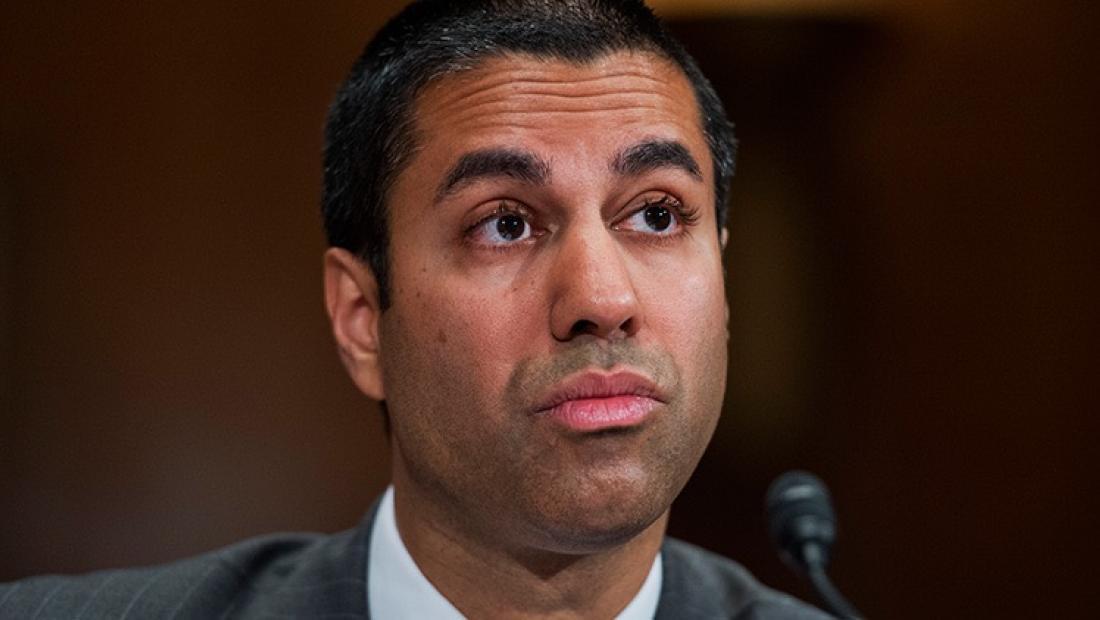Pai Circulates ZTE, Huawei Tech Ban

The smarter way to stay on top of the multichannel video marketplace. Sign up below.
You are now subscribed
Your newsletter sign-up was successful
FCC Chairman Ajit Pai has circulated a long-awaited order that would prevent broadband subsidy money to be spent on equipment from Chinese telecoms ZTE and Huawei, calling them untrusted vendors, as well as on other potential security threats to 5G networks.
The definition of banned equipment is "any equipment or services produced or provided by a covered company—i.e., one that poses a national security threat to the integrity of communications networks or the communications supply chain."
The FCC's Public Safety and Homeland Security Bureau would issue an initial designation of national security threat--which this order does for Huawei and ZTE. Those companies, or any future companies so designated, will have 30 days to respond, then the bureau will have 120 says to issue a final designation.
The FCC worked with national security agencies and law enforcement agencies on the item. The FCC will look to congressional enactments--like bans on government contract money--and guidance from national security and law enforcement in coming up with a designation for future companies.
The plan is to vote on the item at the FCC's Nov. 19 meeting.
If it is adopted, ZTE and Huawei will be put on the 30-day clock to respond.
Asked why Huaweu and ZTE topped the list, FCC officials cite their ties to the Chinese government and military, the fact that Congress had prohibited funds in government contracts to be spent on their tech, that Huawei was on the Department of Commerce's Entity List, that the leaders of the top six U.S. intelligence agencies said they were a security threat, and more.
The smarter way to stay on top of the multichannel video marketplace. Sign up below.
The ban applies to tech in both wireless and wireline, though must of the suspect tech is in the wireless space.
Related: Starks Says Suspect Tech should Be Found, Fixed
The item, which he has circulated to the other commissioners for a vote at the next public meeting, would also include a draft Further Notice of Proposed Rulemaking that would propose requiring certain carriers receiving Universal Service Fund broadband subsidies to remove existing suspect tech and asks for input on ow to provide financial assistance to help carriers migrate to "more trusted suppliers."
The FCC is pondering exactly how to do a "remove and replace" program for switching out new tech, and will use the expertise it gained in the broadcast incentive auction equipment replacement program to inform that.
The FCC is also proposing to adopt an information collection system to help identify eligible telecommunications carriers (ETCs) that have Huawei and ZTE equipment in their networks.
Related: President Moves to Block Deals for Suspect Tech
“When it comes to 5G and America’s security, we can’t afford to take a risk and hope for the best," said Pai. "We need to make sure our networks won’t harm our national security, threaten our economic security, or undermine our values. The Chinese government has shown repeatedly that it is willing to go to extraordinary lengths to do just that. And Chinese law requires all companies subject to its jurisdiction to secretly comply with demands from Chinese intelligence services. As the United States upgrades its networks to the next generation of wireless technologies—5G—we cannot ignore the risk that that the Chinese government will seek to exploit network vulnerabilities in order to engage in espionage, insert malware and viruses, and otherwise compromise our critical communications networks.
“The FCC has a part to play in combating this risk by ensuring that its $8.5 billion Universal Service Fund does not underwrite national security threats.
FCC Commissioner Jessica Rosenworcel signaled the item was as good as far as it went.
“The FCC is moving forward after more than a year and a half with its proposal to ensure that our universal service fund, which supports deployment in rural areas, will not be used to purchase insecure network equipment," she said. "But we need cybersecurity policies that target all our network providers—not just our universal service recipients. In addition, we need to be mindful that in a global economy, our networks will still connect to insecure equipment abroad. So we should start researching how we can build networks that can withstand connection to equipment vulnerabilities around the world, including virtualizing the radio access part of our networks.”
Asked whether the FCC was contemplating extending the ban beyond USF fund recipients, an FCC official said the remove and replace applies only to ETCs for now, but it is seeking comment on whether the ban should be broader.
Contributing editor John Eggerton has been an editor and/or writer on media regulation, legislation and policy for over four decades, including covering the FCC, FTC, Congress, the major media trade associations, and the federal courts. In addition to Multichannel News and Broadcasting + Cable, his work has appeared in Radio World, TV Technology, TV Fax, This Week in Consumer Electronics, Variety and the Encyclopedia Britannica.

